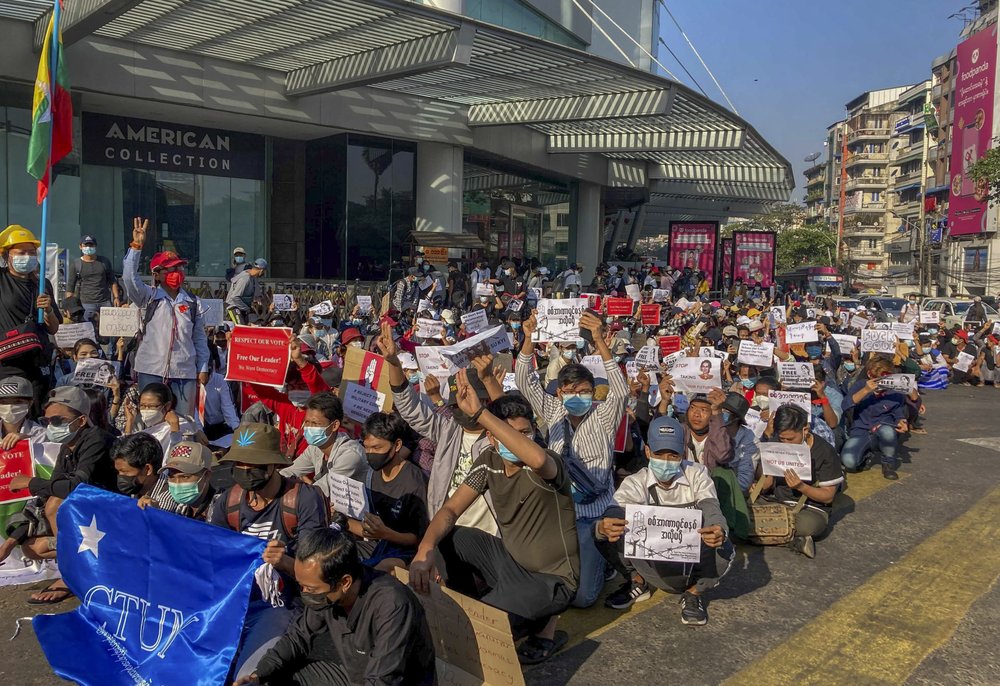

Demonstrators against Myanmar’s military takeover took to the streets again on Tuesday in defiance of new rules that make their protests illegal.
Police were arresting protesters and using water cannons to try to disperse the crowd in Mandalay, and a crowd also gathered in Yangon despite a heightened security presence.
The decrees issued Monday night for some areas of the two cities banned rallies and gatherings of more than five people, along with motorized processions, while also imposing an 8 pm to 4 am curfew.
Yangon is Myanmar’s biggest city and Mandalay its second, where thousands of people have been demonstrating since Saturday. It was not immediately clear if regulations have been imposed for other areas.
The protesters are demanding that power be restored to the deposed civilian government and seek freedom for the nation’s elected leader Aung San Suu Kyi and other ruling party members detained when the military blocked the new session of Parliament from convening on February 1.
In addition to the crowds in Yangon and Mandalay, demonstrations were also held in other cities, including Bago and Dawei, and in northern Shan state.
The growing defiance was striking in a country where past demonstrations have been met with deadly force and are a reminder of previous movements in the Southeast Asian country’s long and bloody struggle for democracy.
On Sunday, tens of thousands of protesters rallied at Yangon’s Sule Pagoda, which was a focal point of demonstrations against military rule during a massive 1988 uprising and again during a 2007 revolt led by Buddhist monks. The military used deadly force to end both of those uprisings.
State media for the first time on Monday referred to the protests, claiming they were endangering the country’s stability.
“Democracy can be destroyed if there is no discipline,” declared a statement from the Ministry of Information, read on state television station MRTV. “We will have to take legal actions to prevent acts that are violating state stability, public safety, and the rule of law.”
However, the military commander who led the coup and is now Myanmar’s leader made no mention of the unrest in a 20-minute televised speech Monday night, his first to the public since the takeover.
Senior Gen. Min Aung Hlaing instead repeated the claims about voter fraud that have been the justification for the military’s takeover, allegations that were refuted by the state election commission. He added that his junta would hold new elections as promised in a year and hand over power to the winners, and explained the junta’s intended policies for COVID-19 control and the economy.
Source: AP